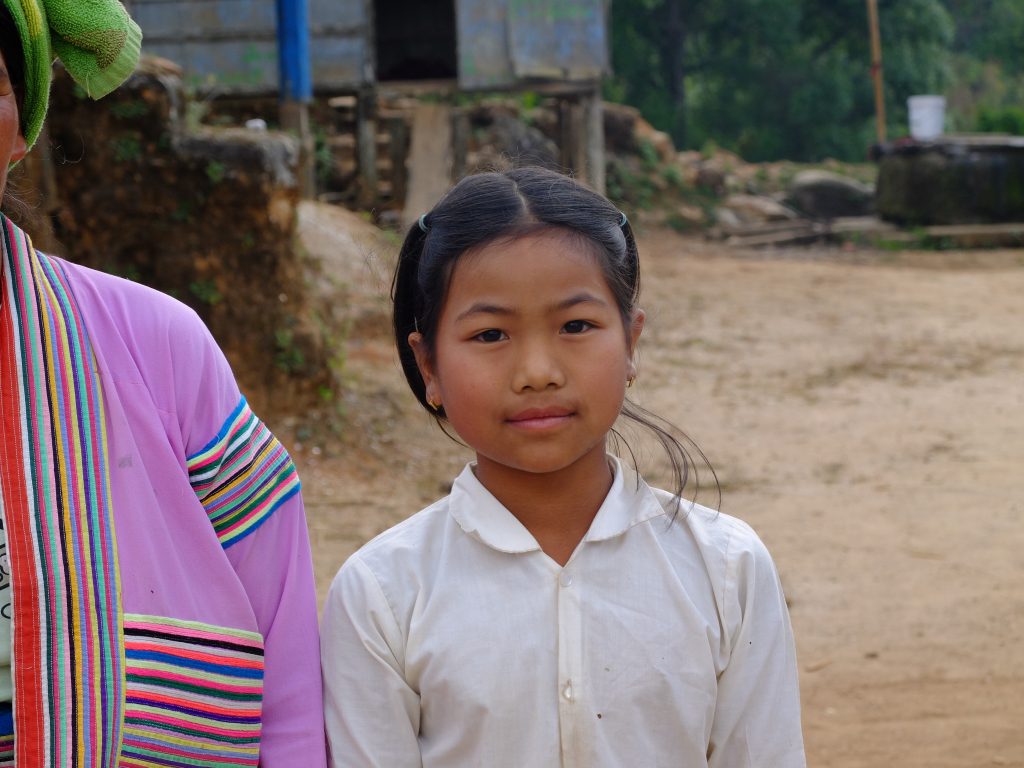Jin Nyu is 10 years old from Hopong Township, Shan State. This year she was able to go to school for the first time. Some of the boys in her village were able to go out of the village to the Monastery for an education, but like all the other girls in her village, she had to stay with her family. In September 2016, a teacher came to their village for the first time with local authorities and talked with the community about setting up a school. Everyone was happy that there was going to be a school set up at the local monastery where all the children could learn.

Jin Nyu walks an hour from her home to get to the school. Her family pack a small lunch with some rice for her to eat while she studies. She attends classes between 9am and 3pm. Walking home is quicker because it is downhill. Her classmates are all different ages between 6 years and 14 years. An excited Jin Nyu now able to attend school remarked, “I want to learn to read and write so that I can read the sign boards and know the prices of things at the market.”
The CASE ‘Conflict Area Support for Education’ project is supporting local partners to extend education services to 28 children at this school. These children are coming from three Ta’ang speaking villages near the monastery. In the first year of school, the teacher’s priority is to teach the children to read and write, but with time the dream is for this school to develop into a fully functioning primary school. The project, funded by EU humanitarian aid through the Children of Peace Education initiative, supports 4,200 children living in remote conflict affected areas without access to education through local organisations. The EU’s humanitarian aid funds relief operations for victims of natural disasters and conflicts outside the European Union. Aid is provided impartially directly to people in need without discrimination of their race, ethnic group, religion, gender, age, nationality or political affiliation.
Written By: Derek Glass, Program Director
Photo: © 2017 ADRA Myanmar | Derek Glass

